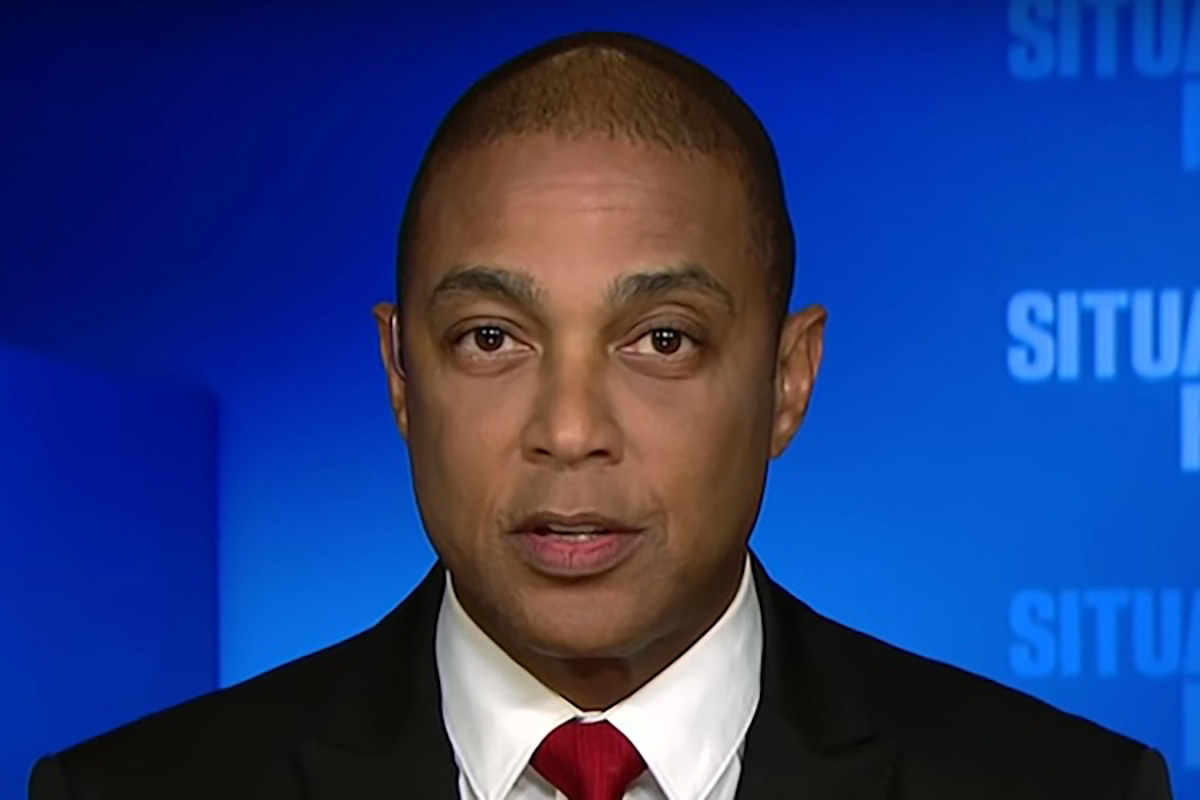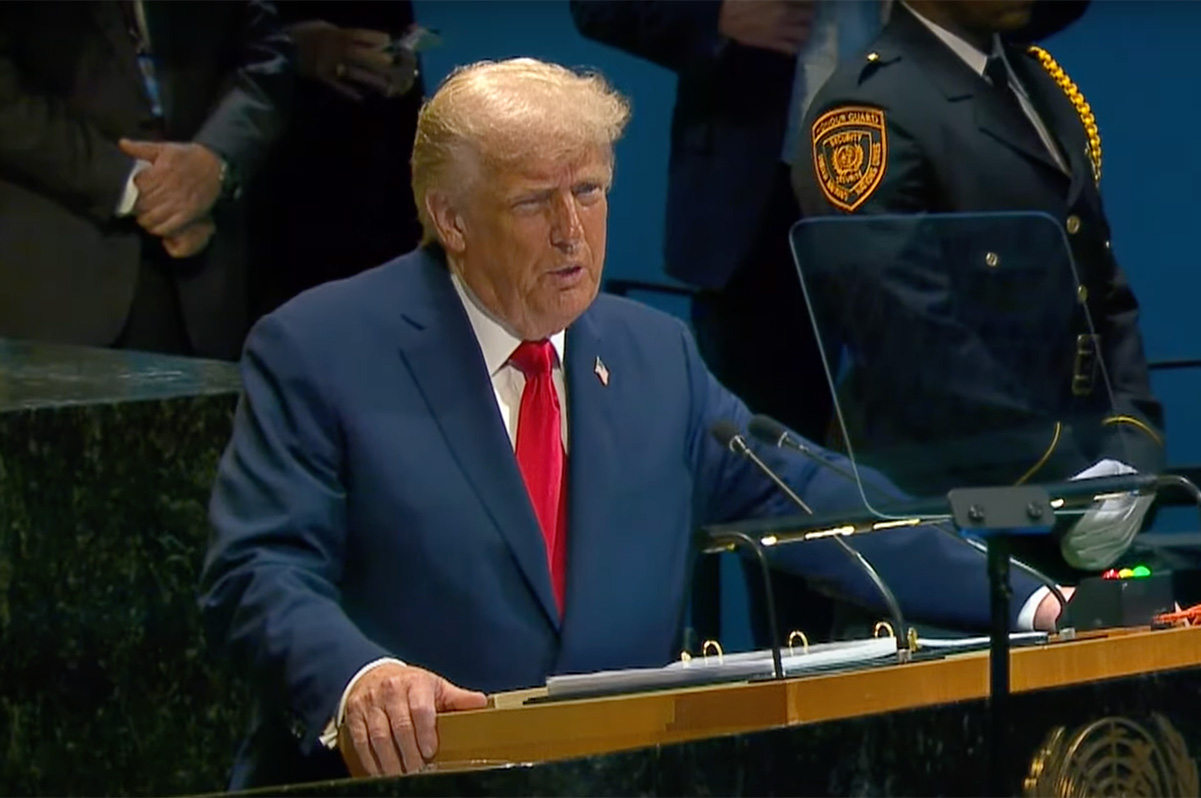National
Matthew Shepard book creates uproar
Laramie sheriff calls writer’s claims about 1998 murder ‘conspiracy theory BS’


A new book claims Matthew Shepard sold crystal meth and worked as an escort. His family said it won’t respond to ‘conspiracy theories.’
A newly published book that claims gay University of Wyoming student Matthew Shepard had a sexual relationship with his killer and his 1998 murder wasn’t a hate crime has triggered expressions of outrage by LGBT activists and fueled efforts by anti-gay groups to downplay the need for hate crimes laws.
“The Book of Matt: Hidden Truths About the Murder of Matthew Shepard,” written by gay journalist Stephen Jimenez and officially released on Tuesday, comes on the eve of the 15th anniversary of Shepard’s murder in Laramie, Wyo.
It also comes at a time when the “Laramie Project,” the internationally acclaimed play about the Shepard murder and its portrayal of the slaying as a hate crime, is about to open at the Ford’s Theater in Washington with a newly produced epilogue.
In addition, a documentary film called “Matt Shepard is a Friend of Mine,” directed by a filmmaker who was one of Shepard’s high school friends, is scheduled to premiere at the Washington National Cathedral on Oct. 4.
With the play and film exploring the Shepard murder as a hate crime that adversely impacted an entire community beyond the scope of an individual victim, the startling assertions made in Jimenez’s book have prompted at least one prominent gay commentator to reassess longstanding assumptions about the Shepard case.
“Events are more complicated than most politicians and activists want them to be,” said gay conservative commentator Andrew Sullivan. “No one should be afraid of the truth.”
Among the book’s claims is that Shepard, 21, knew and socialized with Aaron McKinney, also 21, one of two men convicted of his murder, at least a year before the crime. According to Jimenez’s stated findings in the book, Shepard and McKinney each used and sold crystal meth, both had been involved with an escort service in Denver and Laramie that arranged for them to have sex for money with men, they were seen at the same parties in Laramie, and the two occasionally had sex with each other.
Jimenez told the Blade he devoted more than 13 years of research and investigative reporting in preparation for his book, interviewing more than 100 people on the record, including a dozen people he identifies as friends of Shepard and more than a dozen friends of McKinney.
But some of the national LGBT advocacy groups have joined the Matthew Shepard Foundation, which was created by Shepard’s parents to combat anti-LGBT violence, in challenging the accuracy of the book and the credibility of its sources.
“Attempts now to rewrite the story of this hate crime appear to be based on untrustworthy sources, factual errors, rumors and innuendo rather than the actual evidence gathered by law enforcement and presented in a court of law,” a statement released by the Shepard Foundation says.
“We do not respond to innuendo, rumor or conspiracy theories,” the statement says. “Instead we remain committed to honoring Matthew’s memory, and refuse to be intimidated by those who seek to tarnish it.”
Albany County, Wyo., Sheriff David O’Malley, who served as Laramie police commander at the time of the murder, told the Blade on Tuesday that he believes the book “is full of lies” and described it as “conspiracy theory BS.”
Jimenez said he and others working with him have thoroughly and meticulously scrutinized and vetted the findings of his investigation, which he says included a careful reading of virtually all of the police and court records related to the case that initially had been sealed by a judge.
Laramie officials have said the records became available to the public in late 1999 shortly after the conclusion of the trial of McKinney, who was convicted of bludgeoning Shepard to death by repeatedly striking him in the head with the barrel of a .357 Magnum pistol while Shepard was tied to a fence at an isolated prairie just outside of town.
Co-defendant Russell Henderson confessed to having tied Shepard to the fence while accompanying McKinney on what he said began as a plan by McKinney to lure Shepard from a Laramie bar to rob him. Unlike McKinney, Henderson pleaded guilty to a murder charge rather than face a trial. Both men were sentenced to life in prison without the possibility of parole.
“I think the discovery of who Matthew Shepard was as a person and the complexity of who he was as a human being is really important,” Jimenez told the Blade.
“And so my reason for writing the book is to really say let’s understand what was really going on here,” he said. “If we’re serious about dealing with hate and violence in the culture, let’s understand what really happened here. What are the forces that came into play that created this grotesquely violent murder?”
Added Jimenez: “And certainly as I know now, the official story that these were two strangers that walked into a bar and targeted Matthew because he looked well-dressed and looked like he had money and appeared to be gay or that Matthew came on to them in the bar or that they lured him out of the bar because he was gay – those are simply not true.”
Jimenez was referring to the findings in the official police report that was based in part on a confession by McKinney to police at the time of his arrest three days after the murder. In his confession, McKinney said he and Henderson planned to rob Shepard, not to kill him. He said he lost control of his emotions and actions after Shepard allegedly groped him in the pickup truck that Henderson was driving after Shepard accepted McKinney’s invitation to drive him home from the Fireside bar on the night of Oct. 6, 1998.
McKinney’s lawyers, who attempted to invoke the so-called “gay panic” defense at McKinney’s trial, told the jury in his November 1999 closing argument that McKinney’s judgment was clouded that night by his consumption of alcohol and his use of and addiction to crystal meth amphetamine.
“Aaron McKinney is not a cold-blooded killer,” defense attorney Dion Custis said. “What happened is he hit him too many times” after the crystal meth consumption and Shepard’s alleged groping caused him to fly into an “uncontrollable rage.”
LGBT advocacy groups, noting that perpetrators of anti-gay hate crimes often use the gay panic defense as an alibi, said at the time that McKinney’s use of the gay panic defense confirmed their belief that McKinney’s motive was anti-gay hatred.
O’Malley said the police investigation found that McKinney had not been using crystal meth for several days and that investigators concluded that the murder “had nothing to do with drugs.” He said that the incident started as a robbery but investigators believe the brutality of the beating, in which McKinney crushed Shepard’s skull, involved a form of “overkill” that indicated the true motive was anti-gay animus.
Jimenez argues in his book that McKinney was suffering from the effects of his crystal meth use at the time of the attack but that some of his animus toward Shepard was based on alleged conflicts over a drug deal at a time when the two were working for rival drug suppliers. He bases this theory on information from both named and anonymous sources.
“It boggles the mind that this book flies in the face of all of the evidence related to the drug use,” said Cathy Renna, a former official with Gay & Lesbian Alliance Against Defamation (GLAAD), who attended the McKinney trial.
“Aaron McKinney has changed his story so many times it’s not even worth trying to keep count,” said Renna in referring to subsequent statements that McKinney has made to reporters in interviews from jail.
“But the one thing that Aaron McKinney has been clear about and has remained consistent to is that he didn’t know Matt beforehand.”
Renna and others questioning the reliability of Jimenez’s sources have cited a memo that ABC News correspondent Elizabeth Vargas mistakenly left at O’Malley’s residence in 2004, when she interviewed O’Malley, as confirmation that Jimenez reached his conclusions about the Shepard case before he began research for a controversial report on the ABC program 20/20. The memo, according to critics who have seen it, outlined the view the Shepard murder was not a hate crime along with some of the other revelations recounted in the Jimenez book.
Jimenez, however, told the Blade that the criticism is unfounded because his memo was based on more than two years of research that he already had conducted on the case long before he became involved in the 20/20 project.
He also disputes claims by critics that the 20/20 broadcast on the Shepard case in 2004 was based on unreliable sources.
“When I did the ABC News story every single note, every single interview transcript, everything we did was vetted by the top vice presidents and lawyers at ABC,” Jimenez said.
Concerning his book, Jimenez notes that the lead prosecutor in the Shepard murder case, Cal Rerucha, has stated on the record in his book that he agrees that the preponderance of evidence shows that drugs rather than anti-gay hate was the motive behind the murder of Matthew Shepard.
Regardless of whether the claims in Jimenez’s book are correct or not, some LGBT activists question the purpose of such a book, which they note has already been cited by right-wing anti-gay organizations to question the validity of hate crime legislation.
Florida
AIDS Healthcare Foundation sues Fla. over ‘illegal’ HIV drug program cuts
Tens of thousands could lose access to medications

Following the slashing of hundreds of thousands of dollars from Florida’s AIDS Drug Assistance Program, AIDS Healthcare Foundation filed a lawsuit against the Florida Department of Health over what it says was an illegal change to income eligibility thresholds for the lifesaving program.
The Florida Department of Health announced two weeks ago that it would make sweeping cuts to ADAP, dramatically changing how many Floridians qualify for the state-funded medical coverage — without using the formal process required to change eligibility rules. As a result, AHF filed a petition Tuesday in Tallahassee with the state’s Division of Administrative Hearings, seeking to prevent more than 16,000 Floridians from losing coverage.
The medications covered by ADAP work by suppressing HIV-positive people’s viral load — making the virus undetectable in blood tests and unable to be transmitted to others.
Prior to the eligibility change, the Florida Department of Health covered Floridians earning up to 400 percent of the federal poverty level — or $62,600 annually for an individual. Under the new policy, eligibility would be limited to those making no more than 130 percent of the federal poverty level, or $20,345 per year.
The National Alliance of State and Territorial AIDS Directors estimates that more than 16,000 patients in Florida will lose coverage under the state’s ADAP because of this illegal change in department policy. Florida’s eligibility changes would also eliminate access to biktarvy, a widely used once-daily medication for people living with HIV/AIDS.
Under Florida law, when a state agency seeks to make a major policy change, it must either follow a formal rule-making process under the Florida Administrative Procedure Act or obtain direct legislative authorization.
AHF alleges the Florida Department of Health did neither.
Typically, altering eligibility for a statewide program requires either legislative action or adherence to a multistep rule-making process, including: publishing a Notice of Proposed Rule; providing a statement of estimated regulatory costs; allowing public comment; holding hearings if requested; responding to challenges; and formally adopting the rule. According to AHF, none of these steps occurred.
“Rule-making is not a matter of agency discretion. Each statement that an agency like the Department of Health issues that meets the statutory definition of a rule must be adopted through legally mandated rule-making procedures. Florida has simply not done so here,” said Tom Myers, AHF’s chief of public affairs and general counsel. “The whole point of having to follow procedures and rules is to make sure any decisions made are deliberate, thought through, and minimize harm. Floridians living with HIV and the general public’s health are at stake here and jeopardized by these arbitrary and unlawful DOH rule changes.”
AHF has multiple Ryan White CARE Act contracts in Florida, including four under Part B, which covers ADAP. More than 50 percent of people diagnosed with HIV receive assistance from Ryan White programs annually.
According to an AHF advocacy leader who spoke with the Washington Blade, the move appears to have originated at the state level rather than being driven by the federal government — a claim that has circulated among some Democratic officials.
“As far as we can tell, Congress flat-funded the Ryan White and ADAP programs, and the proposed federal cuts were ignored,” the advocacy leader told the Blade on the condition of anonymity. “None of this appears to be coming from Washington — this was initiated in Florida. What we’re trying to understand is why the state is claiming a $120 million shortfall when the program already receives significant federal funding. That lack of transparency is deeply concerning.”
Florida had the third-highest rate of new HIV infections in the nation in 2022, accounting for 11 percent of new diagnoses nationwide, according to KFF, a nonprofit health policy research organization.
During a press conference on Wednesday, multiple AHF officials commented on the situation, and emphasized the need to use proper methods to change something as important as HIV/AIDS coverage availability in the sunshine state.
“We are receiving dozens, hundreds of calls from patients who are terrified, who are confused, who are full of anxiety and fear,” said Esteban Wood, director of advocacy, legislative affairs, and community engagement at AHF. “These are working Floridians — 16,000 people — receiving letters saying they have weeks left of medication that keeps them alive and costs upwards of $45,000 a year. Patients are asking us, ‘What are we supposed to do? How are we supposed to survive?’ And right now, we don’t have a good answer.”
“This decision was not done in the correct manner. County health programs, community-based organizations, providers across the state — none of them were consulted,” Wood added. “Today is Jan. 28, and we have just 32 days until these proposed changes take effect. Nearly half of the 36,000 people currently on ADAP could be disenrolled in just over a month.”
“Without this medication, people with HIV get sicker,” Myers said during the conference. “They end up in emergency rooms, they lose time at work, and they’re unable to take care of their families. Treatment adherence is also the best way to prevent new HIV infections — people who are consistently on these medications are non-infectious. If these cuts go through, you will have sicker people, more HIV infections, and ultimately much higher costs for the state.”
“Patients receiving care through Ryan White and ADAP have a 91 percent viral suppression rate, compared to about 60 percent nationally,” the advocacy leader added. “That’s as close to a functional cure as we can get, and it allows people to live healthy lives, work, and contribute to their communities. Blowing a hole in a program this successful puts lives at risk and sets a dangerous precedent. If Florida gets away with this, other states facing budget pressure could follow.”
The lawsuit comes days after the Save HIV Funding campaign pressed Congress to build bipartisan support for critical funding for people living with or vulnerable to HIV. In May of last year, President Donald Trump appeared to walk back his 2019 pledge to end HIV as an epidemic, instead proposing the elimination of HIV prevention programs at the Centers for Disease Control and Prevention and housing services in his budget request to Congress.
House appropriators, led by the Republican majority, went further, calling for an additional $2 billion in cuts — including $525 million for medical care and support services for people living with HIV.
While Senate appropriators ultimately chose to maintain level funding in their version of the spending bills, advocates feared final negotiations could result in steep cuts that would reduce services, increase new HIV infections, and lead to more AIDS-related deaths. The final spending package reflected a best-case outcome, with funding levels largely mirroring the Senate’s proposed FY26 allocations.
“What the state has done in unilaterally announcing these changes is not following its own rules,” Myers added. “There is a required process — rule-making, notice and comment, taking evidence — and none of that happened here. Before you cut 16,000 people off from lifesaving medication, you have to study the harms, ask whether you even have the authority to do it, and explore other solutions. That’s what this lawsuit is about.”
National
Federal authorities arrest Don Lemon
Former CNN anchor taken into custody two weeks after Minn. church protest

Federal authorities on Thursday arrested former CNN anchor Don Lemon in Los Angeles.
CNN reported authorities arrested Lemon after 11 p.m. PT while in the lobby of a hotel in Beverly Hills, Calif., while he “was leaving for an event.” Lemon’s lawyer, Abbe Lowell, in a statement said his client was in Los Angeles to cover the Grammy Awards.
Authorities arrested Lemon less than two weeks after he entered Cities Church in St. Paul, Minn., with a group of protesters who confronted a pastor who works for U.S. Immigration and Customs Enforcement. (An ICE agent on Jan. 7 shot and killed Renee Good, a 37-year-old Minneapolis woman who left behind her wife and three children. U.S. Customs and Border Protection agents on Jan. 24 shot and killed Alex Pretti, a 37-year-old nurse who worked for the Department of Veterans Affairs, in Minneapolis.)
Lemon insists he was simply covering the Cities Church protest that interrupted the service. A federal magistrate last week declined to charge the openly gay journalist in connection with the demonstration.
“Don Lemon was taken into custody by federal agents last night in Los Angeles, where he was covering the Grammy awards,” said Lowell in his statement. “Don has been a journalist for 30 years, and his constitutionally protected work in Minneapolis was no different than what he has always done. The First Amendment exists to protect journalists whose role it is to shine light on the truth and hold those in power accountable.”
“Instead of investigating the federal agents who killed two peaceful Minnesota protesters, the Trump Justice Department is devoting its time, attention and resources to this arrest, and that is the real indictment of wrongdoing in this case,” Lowell added. “This unprecedented attack on the First Amendment and transparent attempt to distract attention from the many crises facing this administration will not stand. Don will fight these charges vigorously and thoroughly in court.”
Attorney General Pam Bondi on X confirmed federal agents “at my direction” arrested Lemon and three others — Trahern Jeen Crews, Georgia Fort, and Jamael Lydell Lundy — “in connection with the coordinated attack on Cities Church in St. Paul, Minnesota.”
Fort is also a journalist.
At my direction, early this morning federal agents arrested Don Lemon, Trahern Jeen Crews, Georgia Fort, and Jamael Lydell Lundy, in connection with the coordinated attack on Cities Church in St. Paul, Minnesota.
More details soon.
— Attorney General Pamela Bondi (@AGPamBondi) January 30, 2026
Lemon, who CNN fired in 2023, is expected to appear in court in Los Angeles on Friday.
“Freedom of the press is a cornerstone of a free society; it is the tool by which Americans access the truth and hold power to account. But Donald Trump and Pam Bondi are at war with that freedom — and are threatening the fundamentals of our democracy,” said Human Rights Campaign President Kelley Robinson on Friday in a statement. “Don Lemon and Georgia Fort were doing their jobs as reporters. Arresting them is not law enforcement it is an attack on the Constitution at a moment when truthful reporting on government power has never been more important. These are the actions of a despot, the tactics of a dictator in an authoritarian regime.”
The White House
Expanded global gag rule to ban US foreign aid to groups that promote ‘gender ideology’
Activists, officials say new regulation will limit access to gender-affirming care

The Trump-Vance administration has announced it will expand the global gag rule to ban U.S. foreign aid for groups that promote “gender ideology.”
Deputy Secretary of State Christopher Landau in a memo, titled Combating Gender Ideology in Foreign Assistance, the Federal Register published on Jan. 27 notes “previous administrations … used” U.S. foreign assistance “to fund the denial of the biological reality of sex, promoting a radical ideology that permits men to self-identify as women, indoctrinate children with radical gender ideology, and allow men to gain access to intimate single-sex spaces and activities designed for women.”
“Efforts to eradicate the biological reality of sex fundamentally attack women by depriving them of their dignity, safety, and well-being. It also threatens the wellbeing of children by encouraging them to undergo life-altering surgical and chemical interventions that carry serious risks of lifelong harms like infertility,” reads the memo. “The erasure of sex in language and policy has a corrosive impact not just on women and children but, as an attack on truth and human nature, it harms every nation. It is the purpose of this rule to prohibit the use of foreign assistance to support radical gender ideology, including by ending support for international organizations and multilateral organizations that pressure nations to embrace radical gender ideology, or otherwise promote gender ideology.”
President Donald Trump on Jan. 28, 2025, issued an executive order — Protecting Children from Chemical and Surgical Mutilation — that banned federal funding for gender-affirming care for minors.
President Ronald Reagan in 1985 implemented the global gag rule, also known as the “Mexico City” policy, which bans U.S. foreign aid for groups that support abortion and/or offer abortion-related services.
Trump reinstated the rule during his first administration. The White House this week expanded the ban to include groups that support gender-affirming care and diversity, equity, and inclusion programs.
The expanded global gag rule will take effect on Feb. 26.
“None of the funds made available by this act or any other Act may be made available in contravention of Executive Order 14187, relating to Protecting Children From Chemical and Surgical Mutilation, or shall be used or transferred to another federal agency, board, or commission to fund any domestic or international non-governmental organization or any other program, organization, or association coordinated or operated by such non-governmental organization that either offers counseling regarding sex change surgeries, promotes sex change surgeries for any reason as an option, conducts or subsidizes sex change surgeries, promotes the use of medications or other substances to halt the onset of puberty or sexual development of minors, or otherwise promotes transgenderism,” wrote Landau in his memo.
Landau wrote the State Department “does not believe taxpayer dollars should support sex-rejecting procedures, directly or indirectly for individuals of any age.”
“A person’s body (including its organs, organ systems, and processes natural to human development like puberty) are either healthy or unhealthy based on whether they are operating according to their biological functions,” reads his memo. “Organs or organ systems do not become unhealthy simply because the individual may experience psychological distress relating to his or her sexed body. For this reason, removing a patient’s breasts as a treatment for breast cancer is fundamentally different from performing the same procedure solely to alleviate mental distress arising from gender dysphoria. The former procedure aims to restore bodily health and to remove cancerous tissue. In contrast, removing healthy breasts or interrupting normally occurring puberty to ‘affirm’ one’s ‘gender identity’ involves the intentional destruction of healthy biological functions.”
Landau added there “is also lack of clarity about what sex-rejecting procedures’ fundamental aims are, unlike the broad consensus about the purpose of medical treatments for conditions like appendicitis, diabetes, or severe depression.”
“These procedures lack strong evidentiary foundations, and our understanding of long-term health impacts is limited and needs to be better understood,” he wrote. “Imposing restrictions, as this rule proposes, on sex-rejecting procedures for individuals of any age is necessary for the (State) Department to protect taxpayer dollars from abuse in support of radical ideological aims.”
Landau added the State Department “has determined that applying this rule to non-military foreign assistance broadly is necessary to ensure that its foreign assistance programs do not support foreign NGOs and IOs (international organizations) that promote gender ideology, and U.S. NGOs that provide sex-rejecting procedures, and to ensure the integrity of programs such as humanitarian assistance, gender-related programs, and more, do not promote gender ideology.”
“This rule will also allow for more foreign assistance funds to support organizations that promote biological truth in their foreign assistance programs and help the (State) Department to establish new partnerships,” he wrote.
The full memo can be found here.
Council for Global Equality Senior Policy Fellow Beirne Roose-Snyder on Wednesday said the expansion of the so-called global gag rule will “absolutely impact HIV services where we know we need to target services, to that there are non-stigmatizing, safe spaces for people to talk through all of their medical needs, and being trans is really important to be able to disclose to your health care provider so that you can get ARVs, so you can get PrEP in the right ways.” Roose-Snyder added the expanded ban will also impact access to gender-affirming health care, food assistance programs and humanitarian aid around the world.
“This rule is not about gender-affirming care at all,” she said during a virtual press conference the Universal Access Project organized.
“It is about really saying that if you want to take U.S. funds — and it’s certainly not about gender-affirming care for children — it is if you want to take U.S. funds, you cannot have programs or materials or offer counseling or referrals to people who may be struggling with their gender identity,” added Roose-Snyder. “You cannot advocate to maintain your country’s own nondiscrimination laws around gender identity. It is the first place that we’ve ever seen the U.S. government define gender-affirming care, except they call it something a lot different than that.”
The Congressional Equality Caucus, the Democratic Women’s Caucus, the Congressional Hispanic Caucus, the Congressional Asian and Pacific American Caucus, and the Congressional Black Caucus also condemned the global gag rule’s expansion.
“We strongly condemn this weaponization of U.S. foreign assistance to undermine human rights and global health,” said the caucuses in a statement. “We will not rest until we ensure that our foreign aid dollars can never be used as a weapon against women, people of color, or LGBTQI+ people ever again.”




















